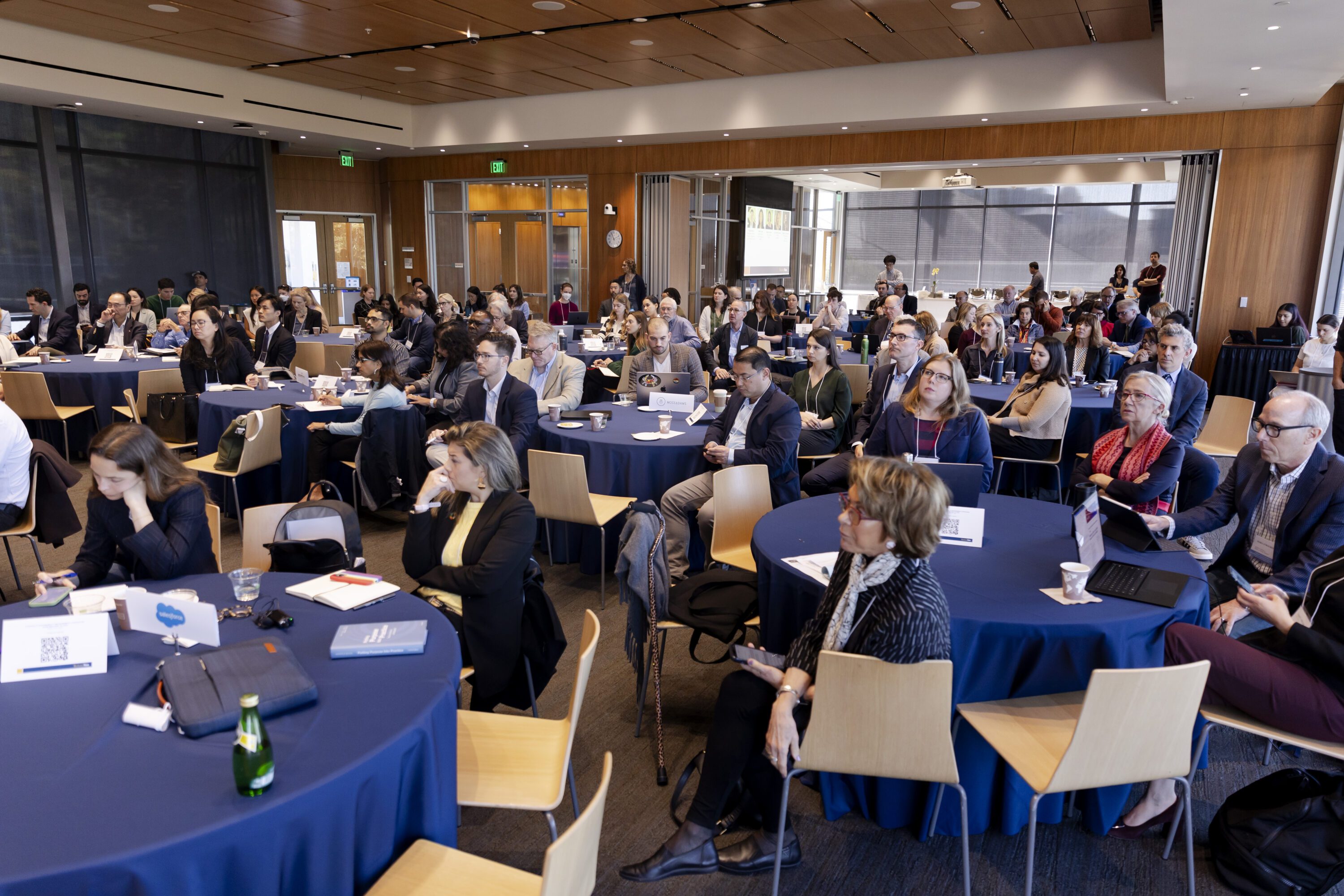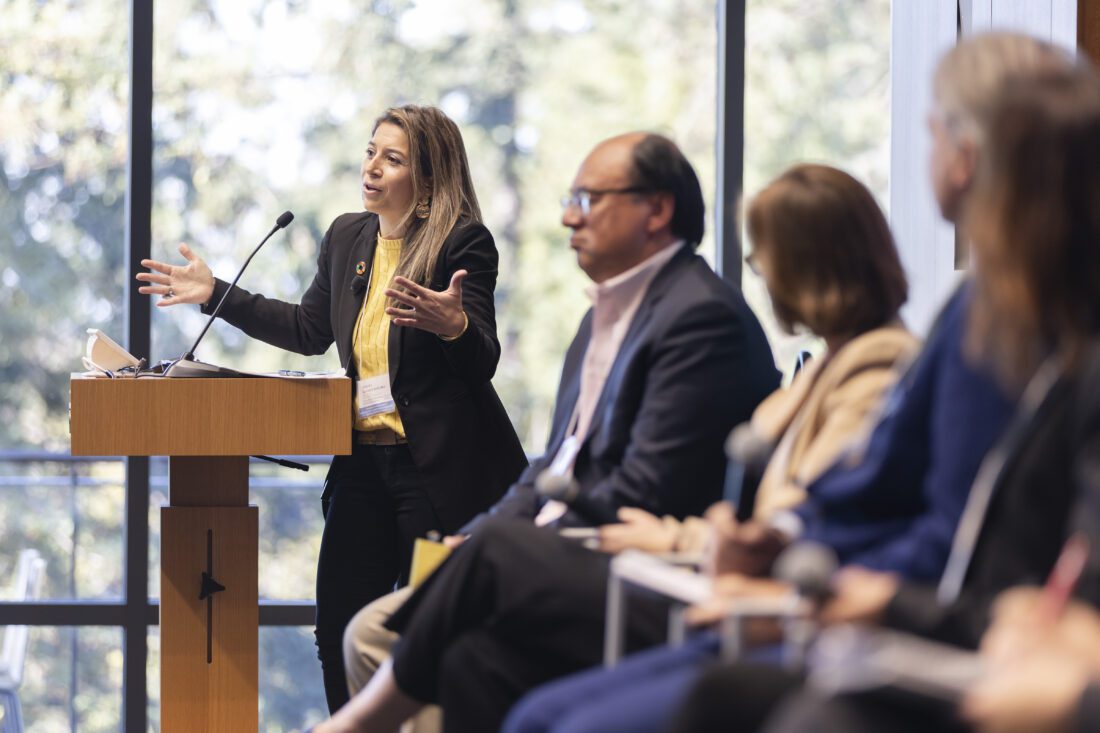
With the Securities and Exchange Commission’s long-awaited climate-disclosure rules blocked by litigation, public companies will continue to operate with a patchwork of laws and standards on sustainability reporting for the near future.
But the consensus among the investors, corporate sustainability officers, accountants, CFOs, and standard setters who gathered at Haas in March was that markets have already moved, with thousands of companies already disclosing information about their carbon emissions and climate risk exposures. In fact, many public and private companies are subject to new reporting regulations in California and the European Union, and investor pressure for increased transparency on climate risk disclosures and other sustainability issues will only continue.
“We’re in a time of regulatory and macroeconomic uncertainty, but that does not mean corporate sustainability reporting is not marching forward,” said Professor Panos N. Patatoukas in his opening remarks at the CFRM 27th Conference on Financial Reporting. “What we measure is what we treasure. My hope is that improved measurement will lead to more efficient allocation of capital in society, which could, hopefully, accelerate the transition to a more sustainable economy.”
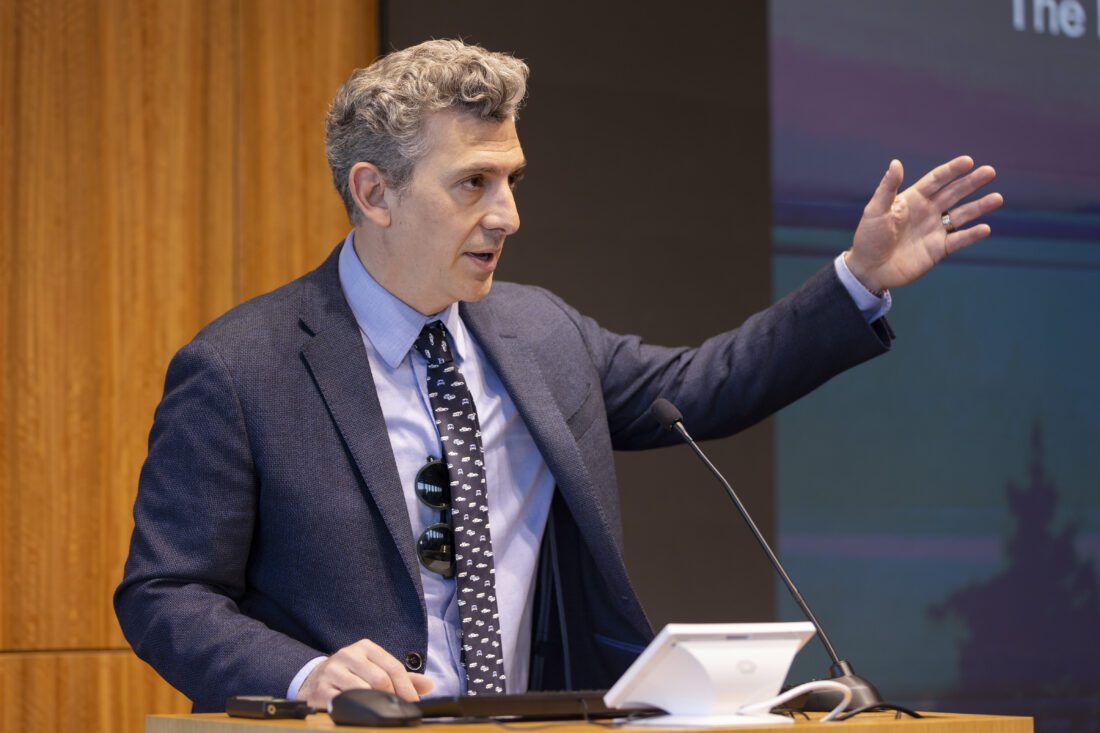
The March 20 conference, organized by the Center for Financial Reporting and Management, was titled “Corporate Sustainability Measurement & Reporting: From Whether, to How.” It was co-hosted by the Sustainable & Impact Finance (SAIF) initiative.
Former Haas dean and Professor Laura Tyson, former chair of the Council of Economic Advisers and a senior advisor to SAIF, gave opening remarks that stressed the importance of consistency for both companies and investors.
“This is incredibly important and it’s all happening right now,” Tyson said.
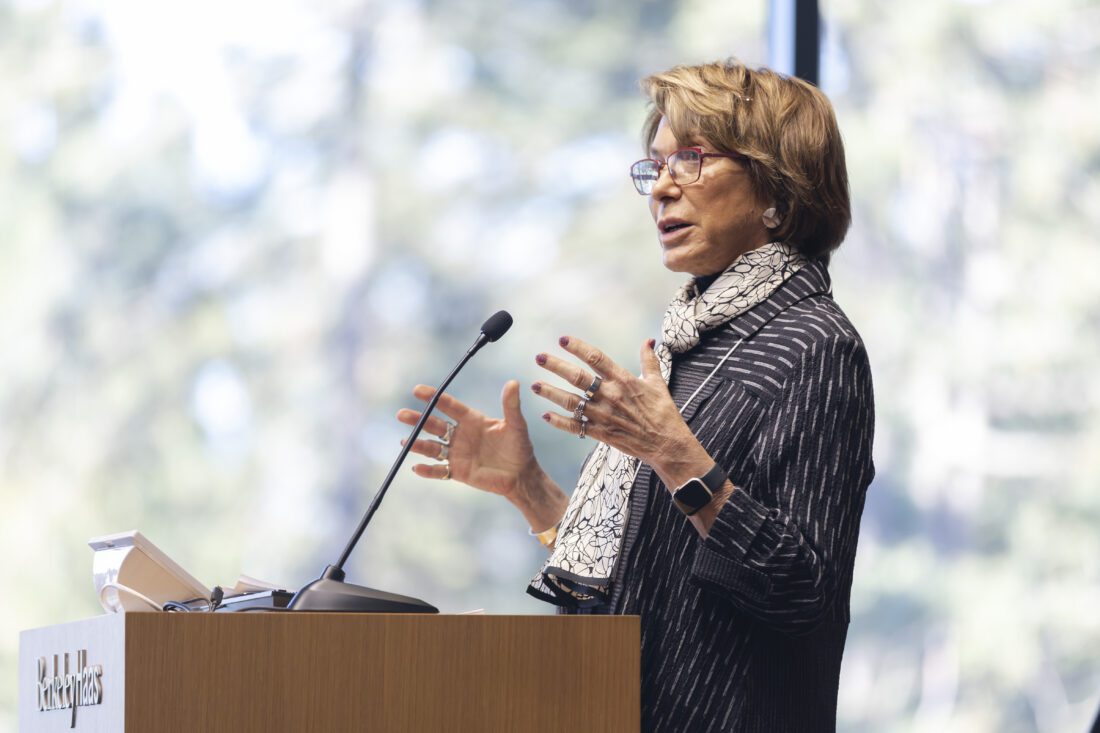
Tyson noted that in the United States, the discussion tends to be about actions that companies take that may have a financial consequence for investors—known as financial materiality. While materiality is the focus of the SEC’s proposed rules, it’s just one part of the discussion, she noted: The second part is non material items that may be important to society or shareholders.
“We have had for a very long time, organizing our financial markets, a set of acceptable standards for traditional financial measures,” Tyson said. “Every firm has to apply them. Every accounting firm has to make sure firms apply them. We need something like that in the standards for sustainability. I think we’ll get there, but Europe may get there before us.”
The company perspective
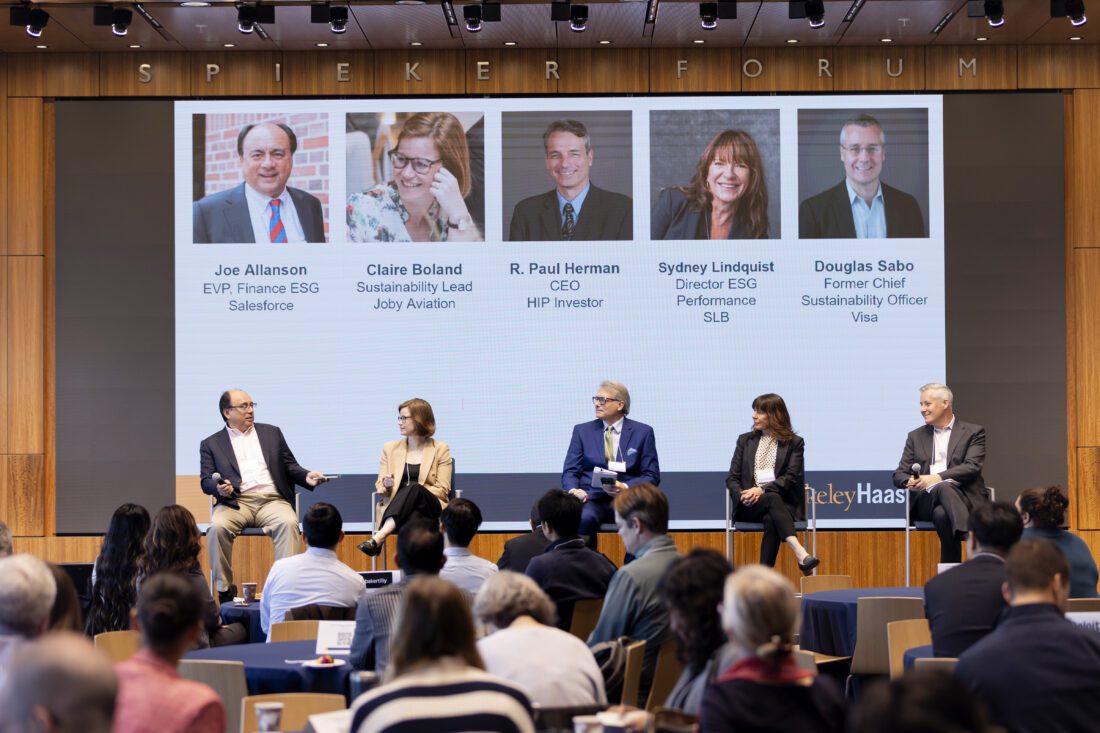
The first panel of the day focused on companies’ perspective, featuring Joe Allanson of Salesforce, Claire Boland of Joby Aviation, R. Paul Herman, CEO of impact investing firm HIP Investor, Sydney Lindquest, ESG director for energy services company SLB, and Douglas Sabo, former chief sustainability officer for Visa.
“Concerns by society quickly turn into shareholder concerns,” Allanson, Salesforce’s EVP of Finance ESG, noted.
One effect of the increased focus on sustainability disclosure is that accountants have had to move outside their traditional silos, communicating across companies more widely. He joked that the array of new rules from the SEC, California, and the EU amounts to a “full employment act for accountants.”
Assurance and verification
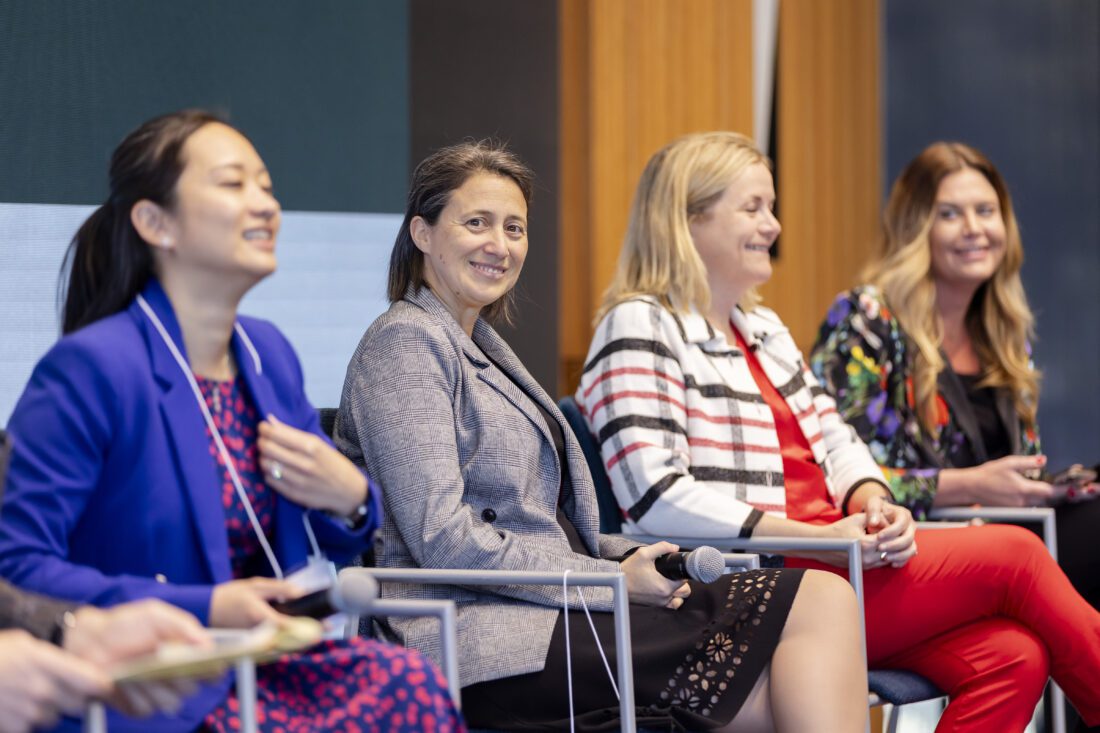
A panel on assurance included (from left to right) Anita Chan of KPMG, Marie Hache, ESG Partner at PwC, Deloitte Partner Laura McCracken, Mallory Thomas of Baker Tilly, and (not pictured) Trip Borstel of EY. They emphasized the importance of building trust through reporting that is relevant, reliable, and verifiable.
The panelists emphasized the need to restore trust with a global baseline of corporate sustainability reporting that uses standardized measurements and definitions.
“We’ve been on a journey, and the next five-to-eight years are going to be really interesting in terms of what happens with the SEC rules and the legal issues,” McCracken said.
Chan echoed Patatoukas’ remarks: “You can’t manage what you can’t measure.”
The panel discussion also highlighted the need for corporations to develop processes, incentives, and governance mechanisms that integrate traditional financial reporting with sustainability reporting.
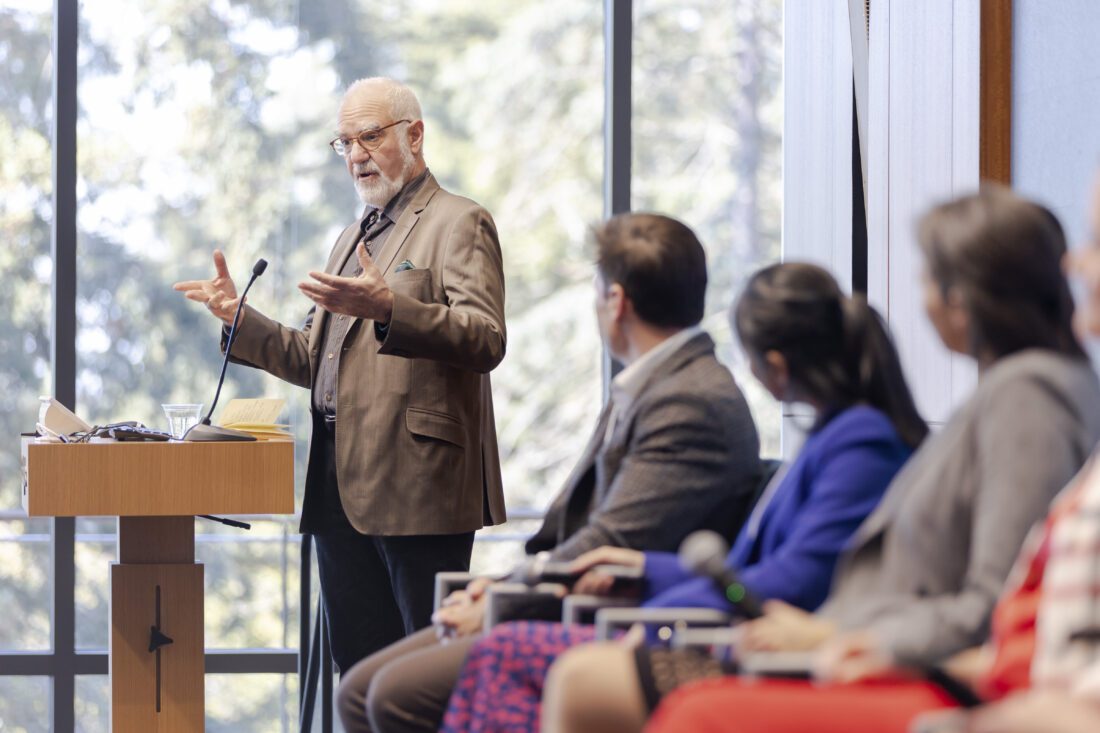
Andy Behar, CEO of As You Sow (above left), served as moderator. “Hope is not a strategy. We are starting to get action,” he said.
Setting standards
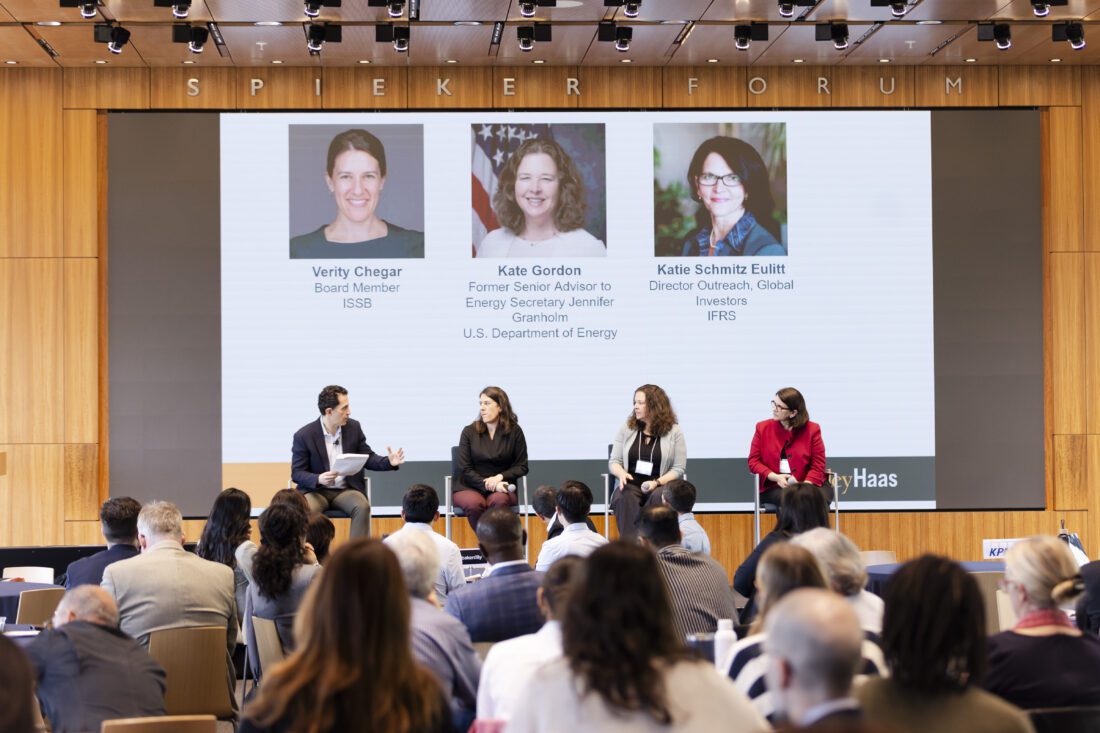
Berkeley Law Professor Stavros Gadinis moderated a discussion on standard setting that included Verity Chegar of the International Sustainability Standards Board (ISSB), former U.S. Department of Energy advisor Kate Gordon, and Katie Schmitz Eulitt, of the International Financial Reporting Standards (IFRS) Foundation.
Despite the fear that we’ll end up with separate sustainability reporting standards—imposed by the SEC, the EU, and California—the panelists agreed that convergence on reporting standards is in everyone’s interest.
“This is a global issue that doesn’t happen within boundaries,” said Gordon, who served as senior advisor to both U.S. Energy Secretary Jennifer Granholm and California Gov. Gavin Newsom. “There does need to be consistency for companies since they can’t parse the different rules.
Asked why climate risks should be singled out in audit reports above other risks—such as cyber threats or policy changes—Gordon emphasized that “climate risk is different because the risks are known, and they are predictable. They are already in the atmosphere from things we did 50 years ago or more.”
Even the election outcome won’t likely turn back the movement toward more disclosure, Schmitz Eulitt said. “Let’s just inhabit a world where the climate rule gets thrown out. My instinct is that if it’s a material issue, you have to disclose it. Investors are asking for it,” she said.
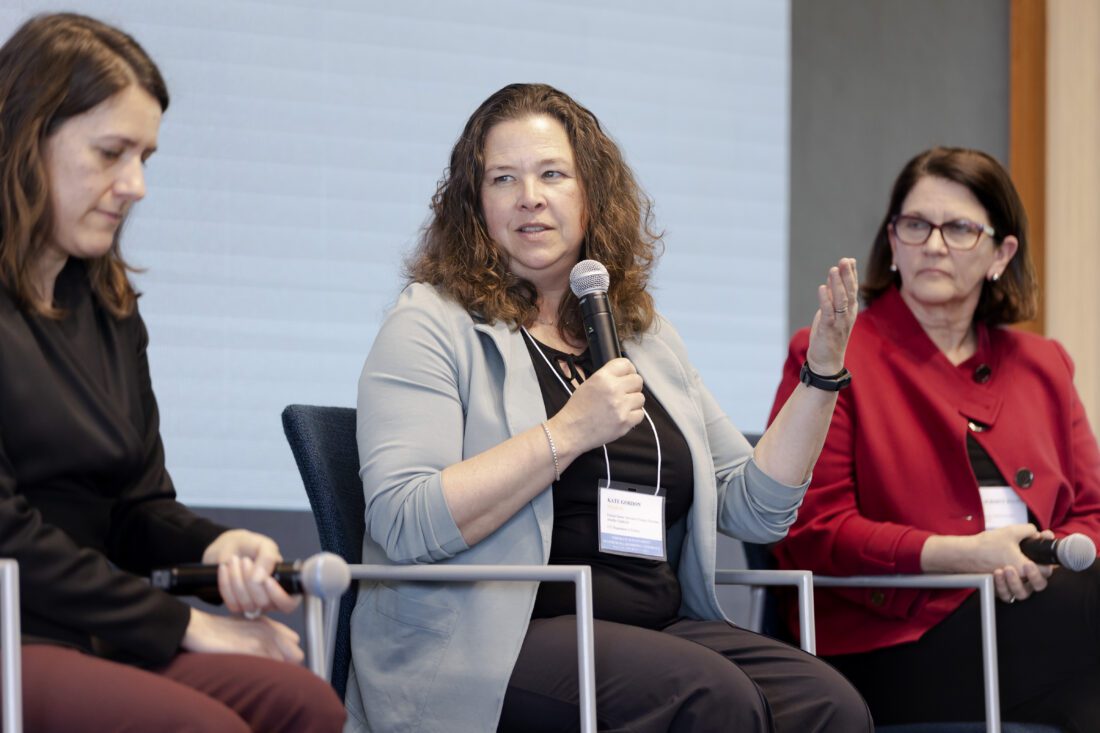
Investors’ perspective
The last panel of the day focused on the investors’ perspective and included Nuveen Senior Director Anthony Mark Garcia, Jonathan Hudacko, MBA 01, personal investing principal at Vanguard, Jamie Nulph, MSCI’s executive director of climate and sustainability, Anne Simpson, Franklin Templeton’s global head of ESG, and State Street’s Karen Wong, global head of ESG investing. Patatoukas served as moderator.
Patatoukas emphasized that “climate risk, which includes both physical risks from environmental changes and transition risks related to moving towards a lower-carbon economy, is increasingly acknowledged as a significant investment risk.”
Wong said reporting standards are critical as more investors ask to incorporate sustainability metrics explicitly into their portfolios. “We have some investors who really care about climate change risk,” she said. “I think it’s important to provide a choice for investors. It’s their money, not ours.”
Asked about the strategy of divestment versus engagement, Simpson, who also teaches MBA, MFE and undergraduate classes at Haas, encouraged students who want change to embrace the complexity of the moment. “If you want to feel pure, roll up your sleeves and walk away,” she said. “If you want real change, you have to roll your sleeves up and get involved.”

